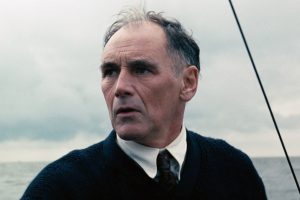War, Survival, and “Dunkirk”


By John Kirchhoefer
Grade for “Dunkirk”: A+
Dunkirk is Christopher Nolan’s masterful tribute to the selfless sacrifice and patriotic integrity displayed by his countrymen in the civilian evacuation of British troops from Nazi occupied Northern France. Nolan’s reverence for the righteousness and moral character of the British people who answered the call is the running theme throughout the three converging timelines that culminate with the successful withdrawal from France. Through these three vignettes of a week (The Mole), a day (The Sea), and an hour (The Air); Nolan explores motifs such as the appreciation of home, the honor in service and sacrifice, the anxiety of war in all its fronts, and the dual nature of survival.
Dunkirk opens with a small group of British soldiers patrolling an eerily vacant and quiet French town as they scavenge and scrounge for anything useful they could glean: hose water, cigarette butts, Nazi propaganda repurposed as toilet paper and in an instant, all but one soldier are cut down by machine gun fire. This opening scene shows how in war a seemingly placid moment can decay in a matter of seconds. From that point on, the clock is ticking for the British and French to get off the beach before they are overrun by “The Enemy,” an unnamed nod to the facelessness and namelessness of all belligerents in wars throughout history. As the unarmed British rifleman makes his way to the soon to be abandoned beachhead, Hans Zimmer’s excellent score has begun. Throughout Dunkirk, Zimmer’s slowly progressing tempo that accompanies each new timeline continually reminds the audience of the increasing urgency of the evacuation as the advancing Enemy closes in on the Allied forces’ position. The score crescendos as the timelines converge and intensity peaks.
With options and resources limited, the British government executed Operation Dynamo which essentially drafted hundreds of British civilians who owned small vessels in Southeast Britain and sent them with their 850 requisitioned boats across the 20 nautical miles of the Straight of Dover in the English Channel to aid in the retreat. Nolan tells this story through the eyes of Mr. Dawson, an older man who owns the Moonstone; his teenage son, Peter; and his son’s friend, George. On their way to Dunkirk, the Moonstone rescues a marooned British soldier from his capsized ship. As the soldier pleads with Mr. Dawson to turn the boat around as continuing to France would assuredly result in their deaths, Mr. Dawson tells him, “Men my age dictate this war. Why should we be allowed to send our children to fight it?” To which, the soldier replies, “You should be at home!” Mr. Dawson poignantly implores the soldier to hold fast by telling him, “There won’t be any home if we allow a slaughter across the Channel.” This causes the soldier to grasp for the helm and accidentally knocks George down the stairs into the cabin where he sustains a head injury that would blind and eventually kill him. This scene captures many of the deeper nuances Nolan tries to express through the film. Mr. Dawson explaining that “home” will cease to exist if they fail their mission to bring the hundreds of thousands stranded British soldiers back, shows that “home” is not a place or an island, it’s the British people. A loss that significant would not only cost Britain being overrun by the Nazis due to the lack of troops left to defend the island, but British culture itself could not carry on if they were to abandon their boys on the shores of France to be slaughtered by the Nazis. The point is driven home when Commander Bolton, portrayed by the brilliant Sir Kenneth Branagh, sees the fleet of fishing, yachting, and sailing vessels and declares he sees “home.”
Another theme addressed in Dunkirk is sacrifice, survival, and the cost of war. In The Sea, George is an accidental casualty of “friendly fire,” but as the audience sees at the end, his sacrifice towards the war effort is no less significant and he is remembered as a “Hero at Dunkirk.” The issue Mr. Dawson and Peter face is whether or not the tradeoff of George’s life worth saving the lives of dozens of British soldiers. It is near impossible to decide whether the cost of the survival of a ship full of men is worth the life of one innocent boy. Nolan again touches on this notion of survival as victory in The Mole, when Harry Styles’ character snarks to the blind World War I veteran that “Well done? All we did was survive.” The old man responds, “That’s enough. Well done.” In The Air, the story of the two spitfire pilots was again that of self-sacrifice for the greater good. Both men knew that the spitfire engine technology was state of the art and they were under strict orders to not let it fall into the Nazis’ hands. So instead of bailing out to save their lives they both risked dying and being captured and tortured by putting the planes down and assuring they were completely destroyed. Farrier, Tom Hardy’s character, also decides to carry on dogfighting, despite being completely out of gas and gliding over the beach, in order to try and protect his countrymen as they made their way to rescue boats. Farrier’s sacrifice, like George’s, like Mr. Dawson’s, like Mr. Dawson’s RAF son, and like the rest of the Britons who risked it all to save their “home” was paramount to the survival and thus the victory of British.
John Kirchhoefer is a senior majoring in Public Administration.